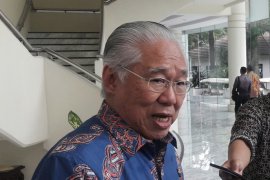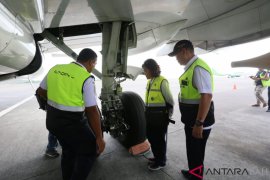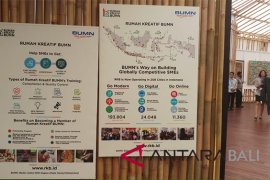Jakarta (Antara Bali) - Bank Indonesia (BI) has admitted that the deficit in primary income transactions is still large due to strong capital outflow caused by loan interest payment, investment profits and repatriation of private profits.
The central bank's Governor, Agus Martiwadojo, said on Thursday he would strengthen coordination with the government to reduce the deficit in income transactions, which had touched US$26 billion until 2014.
"A big deficit has been recorded in the income sector. Imagine we still have a deficit of US$26 billion due to dividend and interest payments," he said after the inauguration of the Indonesia Payment System Forum.
The deficit in income transactions is the biggest contributor to the current account deficit, which has been recorded at US$27 billion.
Through various efforts and central banking policies, the current account deficit is expected to drop to US$19 billion at the end of 2015.
"The current account deficit in 2013 was US$29 billion and in 2014, it was pegged at US$27 billion, but in 2015 it will be below US$19 billion. It is an improvement, although there is still a large deficit," he said.
Martiwadojo said he believed the new package of economic policies, which will be unveiled by the government soon, will be received well by the market.
He said the new economic package would be an integral part of the economy and would help synchronize sectors and provide them with a long-awaited stimulus.
"We can call it a September package, which will be followed by an October package," he said.
The BI Governor has also submitted recommendations on sectors that need to be covered by the new economic policies, although these proposals are still at an earlier stage and therefore cannot be revealed yet, he said.
He also expressed his optimism about Indonesia's economy still being able to grow as projected at 4.7 to 5.1 percent in 2015. The realization of accelerated disbursement of the central and regional government's budgets and optimization of state-owned enterprises' performance, especially in infrastructure development would be the key to achieving growth in the second semester, he stated. (WDY)
Current Account Deficit Still Wide
Pewarta : Reporting by Indra Arief Pribadi 28 Agustus 2015 10:14 WIB












